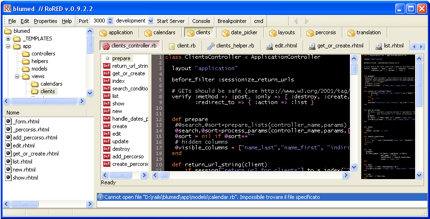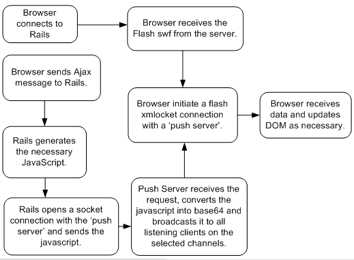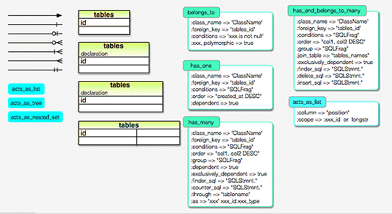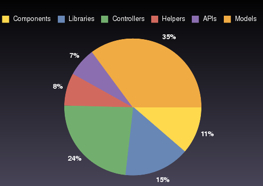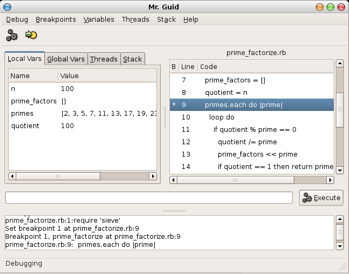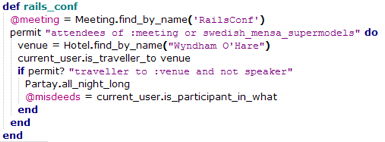
The “Authorization plugin” is an interesting plugin for Ruby on Rails that provides role based authorization for your app. It’s particularly interesting because it includes some ‘English-like’ dynamic methods that can use the defined roles. For example, user.is_fan_of angelina and angelina.has_fans? where ‘fans’ are defined in the roles table. Also look at the code example in the graphic above.
You can also do things like user.is_eligible_for_what (returns an array of authorized objects on which the user has the ‘eligibile’ role) and user.is_moderator_of?(group) (returning true or false if the user has the moderator role upon group). Powerful stuff!
The latest version was released just a few days ago so it should all be ready for full Rails 1.1 goodness. Read More

